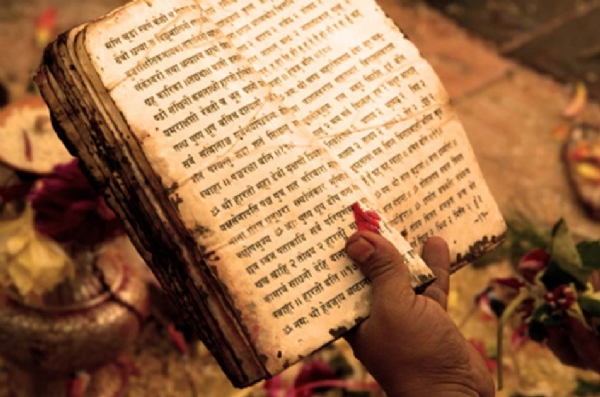HUGE! Students to get credits for expertise in Vedas, Puranas
The guidelines under the framework will now be implemented in all higher education institutions across the country.
Total Views | 100
New Delhi, April 12: In a significant development, students will now be able to earn credits for their expertise in various aspects of the Indian Knowledge System (IKS), including Vedas and Puranas. This came after the final report on the National Credit Framework (NCrf) was released by the University Grants Commission (UGC) on Tuesday.

It should be noted that the NCrF launched in accordance with the National Education Policy (NEP) 2020 advocates that there shuld be “no hard separations” between vocational and academic streams. The draft NCrf document seeking public feedback was released in October 2022 and, after receiving final comments, it has been notified by UGC, the higher education regulator, on Tuesday. The final version of the draft has added components of IKS for acquiring credits under it.
"The IKS tradition mentions 18 major vidyas, or theoretical disciplines; and 64 kalas, applied sciences or vocational disciplines, crafts. The 18 vidyas include — the four vedas, the four subsidiary vedas (Ayurveda – medicine, Dhanurveda – weaponry, Gandharvaveda – music, shilpa – architecture), Purana, Nyaya, Mimamsa, Dharmsastra and Vedanga, the six auxiliary sciences, phonetics, grammar, metre, astronomy, ritual and philology — these formed the basis of the 18 sciences in ancient India," the report said.
यूजीसी द्वारा सोमवार को जारी नए राष्ट्रीय क्रेडिट फ्रेमवर्क पर अंतिम रिपोर्ट के अनुसार, छात्र अब वेद-पुराण, मीमांसा, धर्मशास्त्र, ज्योतिष सहित वेदांग आदि भारतीय ज्ञान परंपरा के अन्य आयामों में विशेष ज्ञान के लिए क्रेडिट हासिल कर सकेंगे.
— UGC INDIA (@ugc_india) April 12, 2023
सौजन्य: न्यूज़18.https://t.co/Tn9skFkPoG
The framework integrates the credits earned through school education, higher education and vocational and skill education. It will cover the credits assigned on the basis of learning hours from Class 5 to PhD level. The total hours of learning per credit will be 30.
The framework also allows to “creditise” every learning, subject to its assessment. It means credits can be earned through classroom teaching/learning, laboratory work, innovation labs, sports and games, yoga, physical activities, performing arts, music, handicraft work, social work, NCC, among others.
The final report adds IKS to the list under the "special achievers" category, though it was not there in the draft document released in October. The document stressed that credits must be awarded based on pre-defined learning outcomes along with criteria for special achievements. "The special achievement could be winning medals or holding positions in national or international events, Padma or other awards conferred by central or state governments or other recognised bodies, high-impact high-priority social work which could be duly assessed through independent assessment methods,” it said.
Bharati Web






